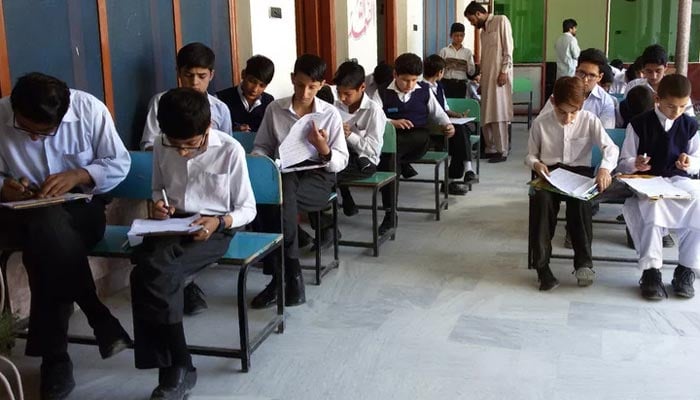
We have in recent years seen the number of blasphemy cases grow alarmingly in our country. What is disturbing is that at schools and madrassas across the country, the mindset of children and young people is becoming closer and closer to the idea that, in the first place, people should be killed on alleged charges of blasphemy as happens too often in our country.
The latest case of this involves the man shot in Quetta while in police custody by a policeman who should have been protecting the accused. The man had been taken into protective custody after being accused of blasphemy and surrounded by a mob.
The scale of the problem can be gauged by incidents in Swat which led the military to set up a school intended to deradicalise children and young people after the Tehreek-e-Taliban Pakistan (TTP) takeover of the valley. The killing of a clerical teacher who was employed at the school did not help matters. The idea, however, on the surface appears to be a sound one. Other countries such as Sri Lanka have set up similar programmes to bring child soldiers and young fighters back into the mainstream of society.
We need to do the same — not only by better monitoring at madrassas but also at our regular schools. The current curriculum builds in children a sense that all those who are not Muslim are “the other”.
So how do we put our children on a different course? A route that will take them to a happier place and a place where death is not the answer to problems. There is obviously no simple solution. The effort will also need to be spaced out over some time and efforts made to cover all schools in the country by laying down specific laws. Parliament and provincial assemblies must act as the first step in this process.
And then, at the schools themselves, we need not only trained teachers who have been deradicalised themselves but also psychologists and therapists who can help children cope with trauma. These misunderstandings run deep and have become increasingly rooted in society over the years.
There are currently thousands of children studying a curriculum that encourages hatred. The curriculum will of course have to be changed, quite unlike the Single National Curriculum suggested under the Pakistan Tehreek-e-Insaf (PTI). This must include a wider look at the world and all that it holds. Children must be encouraged to look beyond the extremely limited versions of history that we teach, beginning either in 1947 or quite ludicrously in 712 AD when Muhammad Bin Qasim conquered Sindh.
We have never taught our children of the interconnections that once existed in cities like Lahore, Quetta, Karachi, Peshawar, and many other places spread out across our land. These interconnections meant joint ceremonies on occasions such as Eid or Diwali, and an understanding that all people formed a single community.
Training children to think more openly and build the idea that schools should be about teaching students discovery and research, even at very young ages is a concept we need to introduce. Only if we can do so will we move away from the limited understanding of the world that has created so much hatred in a society where no one is safe and accusations against any individual can lead to huge dangers for the person at whom the finger is pointed.
Time is running out. The hatred has already claimed far too many lives and created a mindset that has filtered down to children and young people everywhere. This needs to change. It can happen only by offering people more openness and an ability to express themselves through theatre, dance, music, and other ways.
These avenues are far too limited now and are among the many factors that play a role in making Pakistan a country obsessed with mob justice. If we wait any longer, there will be still more disaster and still more mayhem in society everywhere.
True scholars and educationists of standing need to be brought in to design a new curriculum and find new ways to teach children. This is especially important in an age of AI and other technologies which must be used to find positive ways to help young people learn.
The writer is a freelance columnist and former newspaper editor. She can be reached at: [email protected]
Disclaimer: The viewpoints expressed in this piece are the writer’s own and don’t necessarily reflect Geo.tv’s editorial policy.
Originally published in The News



